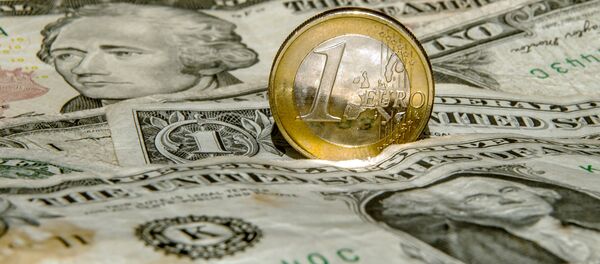Sputnik: What's your take on the current status of the euro?
Sputnik: Have the economies of the countries that adopted the euro won or lost as a result?
Nicola Borri: In my opinion, countries benefited from the Euro. First, borrowing rates dropped also for poorer countries. Second, poorer countries were able to borrow more than in the past. Third, the common currency and a strong common central bank were able to limit the damages of the financial crisis.
Sputnik: What's your take on the financial status of the Eurozone in light of fiscal difficulties in Italy? Do you agree that the economies of Italy and Greece were stronger without the euro?
READ MORE: Analysts Favour British Pound Over Euro Amid Renewed Brexit Woes
Sputnik: Which countries tend to benefit and which appear to be losing because of the euro? Would they be better off using their own currencies?
Nicola Borri: Probably, the countries who benefited the most so far are the ones in the euro-periphery: like Italy, Spain and Greece. However, if these countries do not address their structural problems (see my point above), they could also be the one who will lose the most in the future. In fact, having their own currencies could give them a quick temporary fix to the low productivity problem by devaluing their own currency and increase exports. However, currency devaluation is a dangerous instrument to use. Markets and investors learn quickly and anticipate devaluation policies so that usually inflation starts to rise, as we see for example in Argentina.
Sputnik: How would a switch to the euro affect the Balkan states that are looking to join the European Union?
Nicola Borri: The Balkans states would enjoy a similar experience to that of countries like Italy, Spain and Greece right after the adoption of the Euro, in 1999. This means dropping borrowing rates and large inflows of foreign capital. However, Balkan states should also learn from the past mistakes of countries like Italy, or Greece, and use these resources to improve the productivity of their economies.
The views expressed in this article are those of the speaker and do not necessarily reflect those of Sputnik.






